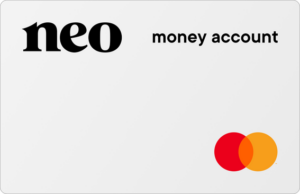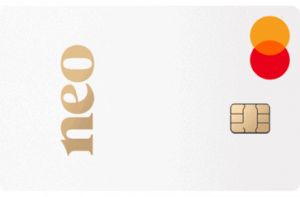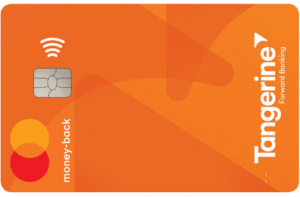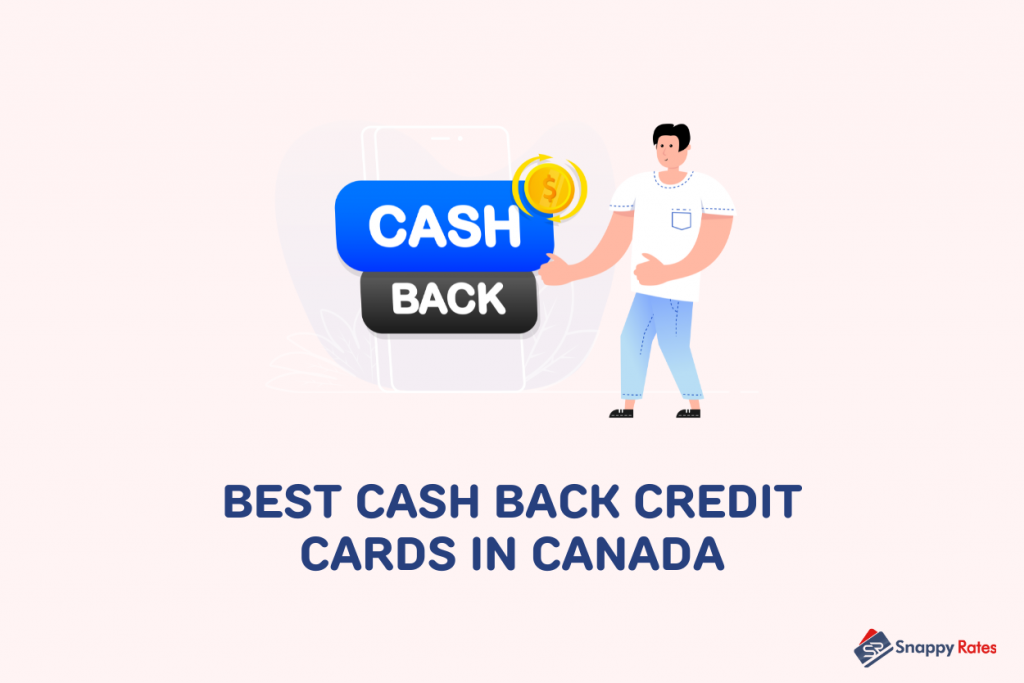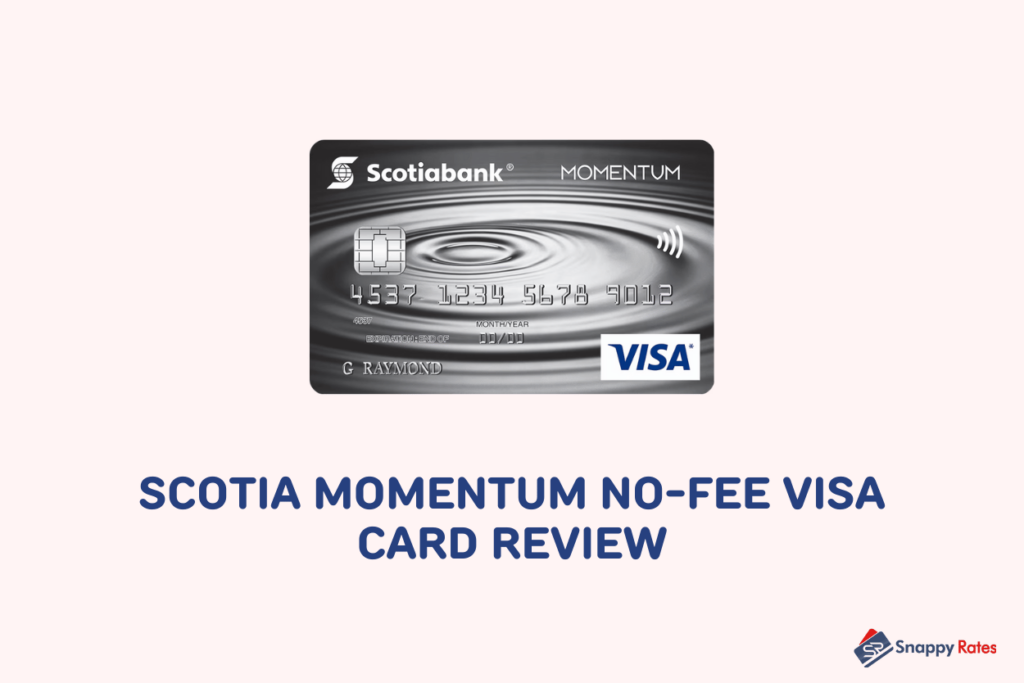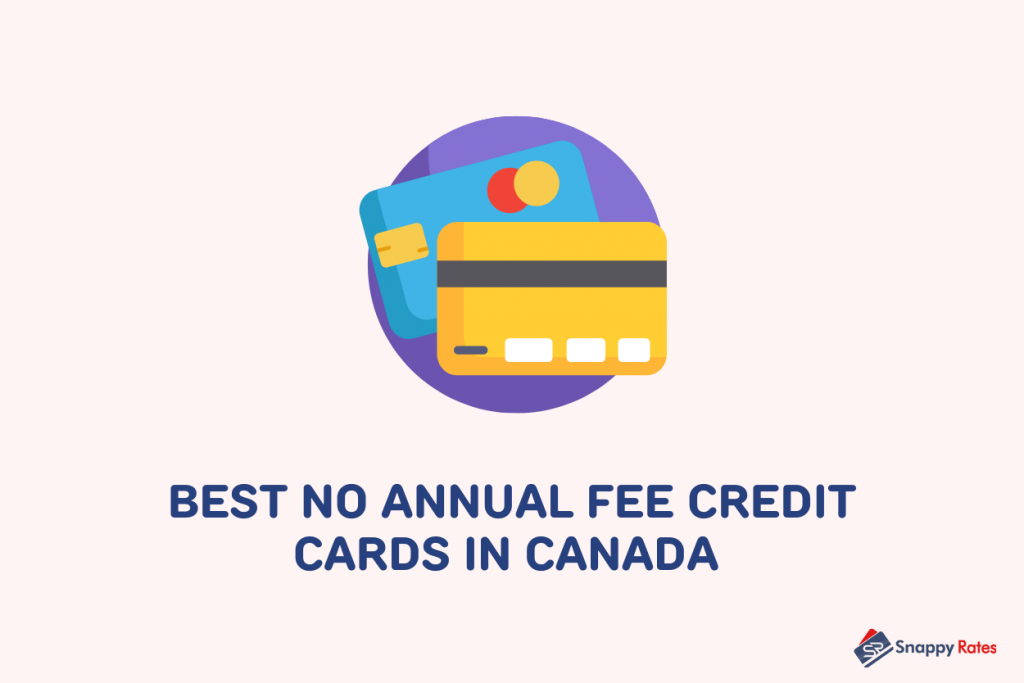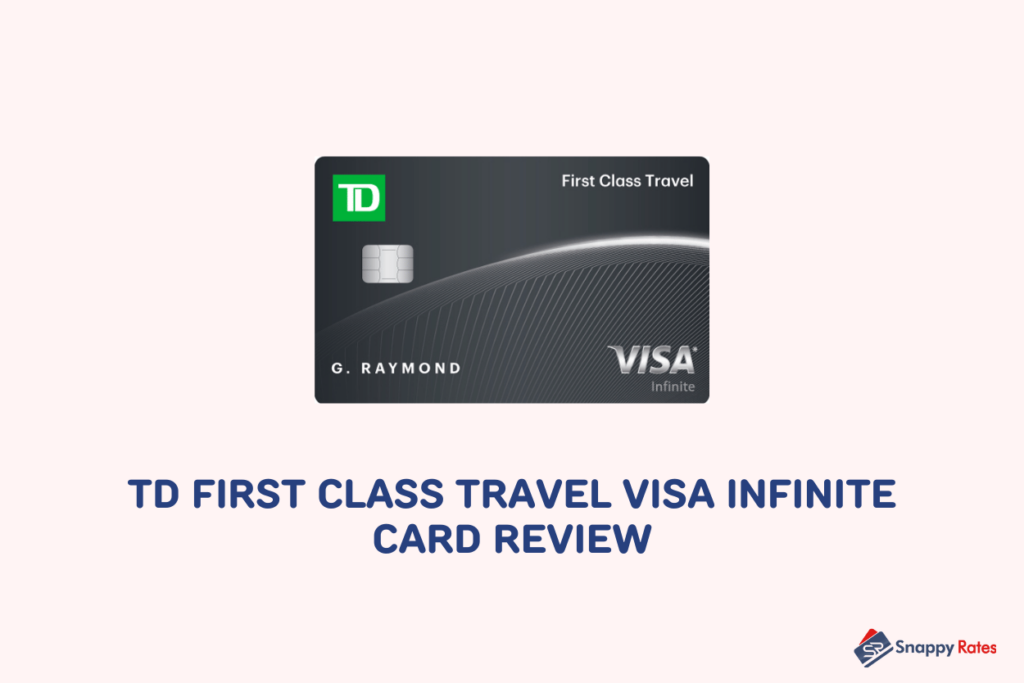Many types of credit cards are available in Canada, and choosing the right card depends on various factors.
For example, low-interest credit cards are ideal if you carry a balance and want to reduce the interest you pay, but they don’t come with many premium perks.
Rewards credit cards, on the other hand, are packed with rewards and premium perks, but they are often more expensive and have higher minimum income requirements.
Here we’ll look at the main types of credit cards in Canada and how they work so you can make the best decision for your situation.
Types of Credit Cards in Canada
Several types of credit cards are available in Canada, all of which offer slightly different things.
Here are 10 types of credit cards that you might want to consider applying for:
1. No-Annual-Fee Credit Cards
Most credit cards have an annual fee that you have to pay to use them. No-annual-fee credit cards, on the other hand, are free.
However, they may have other costs, from interest to over-limit fees and FX fees, so they are not exactly free.
The Tangerine Money-Back Credit Card is one of the best for cashback rewards. You can earn 2% cashback in up to three categories and 0.5% cash back on other purchases with no limit on the amount you can earn.
The Neo Financial Mastercard (Neo Card) is another great no-fee card for earning cashback. You can earn 5% cashback at over 7,000 participating brands and retailers and 0.5% cash back on other purchases.
2. Low-Interest Credit Cards
Low-interest credit cards are exactly that: credit cards with lower-than-average interest rates.
They are useful if you carry a balance and want to reduce the interest you pay, helping to pay your balance off sooner and less expensively.
The Scotiabank Value Visa is one of Canada’s best low-interest credit cards. It has a 12.99% APR on purchases, cash advances, and balance transfers.
National Bank’s Syncro Mastercard is another of the best cards if you want to pay a low-interest rate. It has a variable purchase interest rate of 4% plus the Prime rate and 8% plus the Prime rate for cash advances.
3. Secured Credit Cards
Secured credit cards are targeted at people with poor credit scores. With these, you have to pay a security deposit. You can then borrow up to the amount of your deposit.
They can be a useful way to rebuild your credit score while other cards are unavailable. Unfortunately, they don’t often come with many perks, but some do.
The Neo Secured Card is one of the best secured credit cards you can get in Canada. You can also enjoy up to 5% unlimited cash back at thousands of Canadian stores.
The Home Trust Secured No-Fee Visa is a no-fee secured card. You can make a security deposit of up to $10,000, and it has a very high approval rate.
4. Prepaid Credit Cards
Prepaid cards are not exactly credit cards. Instead, they are cards where you load them up with money and spend your own money rather than borrowing.
They are an option for people with low credit scores, and you can use them to enjoy the same convenience of shopping with a credit card. But they won’t have an impact on your credit score.
The KOHO Mastercard Prepaid Card is one of the best prepaid cards in Canada. With this card, you can earn cashback of up to 6% at select merchants.
You might also want to check out the CIBC AC Conversion Visa Prepaid Card. This card lets you hold up to 10 currencies, making it useful for travellers. It also has no monthly fee.
5. Rewards Credit Cards
Rewards credit cards have reward schemes where you can earn points for using the cards. You can then use the points to get discounts on other purchases or special perks.
Several types of credit card companies offer these, including credit cards issued by stores. They often come with premium perks like insurance and discounts, but they sometimes have high annual fees.
The Scotiabank Gold American Express does not charge any FX fees. It also allows you to earn Scene+ points that you can use to get discounts, including comprehensive insurance coverage and other VIP perks.
You might be interested in the American Express Platinum Card. You can earn Membership Rewards Points with this card that you can use to save on almost anything. It also has access to 1,300+ airport lounges, travel insurance coverage, and more.
6. Cashback Credit Cards
Cashback credit cards reward you when you spend on the cards by giving you money back. They will give you a percentage back on all your purchases.
Some give you a higher percentage on certain categories of spending (e.g. groceries) or for making purchases in specific stores. Some cards allow you to earn unlimited cashback, while others will have a maximum limit.
You can earn 4% cash back on grocery and gas purchases with the CIBC Dividend Visa Infinite Card. You can also enjoy 2% cash back on dining, transport, and recurring payments and 1% on other purchases. It also includes mobile device insurance and travel medical insurance.
The Scotiabank Momentum Visa Infinite Card allows you to earn 4% cash back for groceries, recurring bill payments and subscriptions, 2% on transit and gas, and 1% for other purchases. Travel insurance benefits are also included.
7. Travel Credit Cards
Travel credit cards come with perks and rewards for travellers. These include travel insurance, no FX fees, free overseas withdrawals, discounts on car rentals, access to airport lounges, special offers on hotels, and more.
With the TD First Class Travel Visa Infinite Card, you can earn TD Rewards Points to get travel-related discounts. It also includes car rental discounts, annual TD Travel Credit, and travel insurance.
You won’t have to pay FX fees with the Scotiabank Passport Visa Infinite Card. It also includes several premium travel perks, including Priority Pass membership to access six airport lounges each year. You can earn Scotia Rewards points too.
8. Student Credit Cards
These credit cards are targeted at students. Students often don’t have credit histories, making it harder to get accepted for other credit cards. In addition, these cards often have perks and rewards that are tempting for students.
The Scotiabank American Express Card has no annual fee, and users can earn Scene+ points. It also includes mobile device insurance.
The CIBC Aeroplan Visa Card for Students does not have a minimum income requirement, and it has a $1,000 minimum credit limit and no annual fee. In addition, users can earn Aeroplan points when they spend on the card.
9. Business Credit Cards
These are credit cards targeted at business owners. They can help free up cash flows, provide financing when needed, and offer benefits like insurance coverage. They also come with rewards that can be useful for your business.
For example, the Marriott Bonvoy Business American Express allows you to earn Marriott Bonvoy points. You get 3 points for every $1 you spend on gas, travel, and dining and 5 points per $1 you spend at Marriott Bonvoy properties.
There is no annual fee for the BMO Cash Back Business Mastercard, and you can earn 1.5% cash back on certain categories like office supplies and gas.
10. Balance Transfer Credit Cards
If you carry a balance on a credit card with a high rate of interest, you may want to switch to a balance transfer credit card.
These allow you to transfer your balance and pay a low-interest rate, or sometimes a 0% rate, for several months. This can help you to pay off your balance sooner while paying less interest.
The MBNA True Line Mastercard has no annual fee and offers 0% for 12 months at the time of publishing. It charges a 3% balance transfer fee, and it has a low 12.99% APR on purchases.
You won’t have to pay an annual fee for the BMO Air Miles Mastercard either. It currently offers 0.99% on balance transfers for 9 months with a 2% balance transfer fee.
Here are the best balance transfer credit cards.
How to Choose the Best Type of Credit Card for You
Take a look over the different types of credit cards above and weigh the pros and cons of each to help you determine which is best for you.
If you have a poor credit score, you may want a secured credit card. If you carry a balance, a balance-transfer credit card may be a good option. If you simply want to earn rewards for using your card, a rewards credit card may be worth looking into.
It all depends on your specific situation, so ask yourself why you want a credit card in the first place, consider your situation, and use this to decide which is the best type of card for you.
FAQs
Is it better to have a Visa or Mastercard?
It doesn’t matter whether you have a Visa or Mastercard because both are widely accepted. It would only matter if you frequently shop somewhere that only accepts one or the other.
What do the first 6 digits of a credit card mean?
The first 6 digits of a credit card make up the Issuer Identification Number (IIN). This is sometimes called the Bank Identification Number. Every bank has its own code, which is used on the credit cards it issues.
Who is bigger: Visa or Mastercard?
Visa is bigger than Mastercard in terms of the number of cards in circulation and transactions. However, they are both accepted widely around the world.
Can someone use my credit card without the CVV?
Someone would need the CVV to make a purchase online. However, if someone used your card in a store and made a contactless payment, they would not need your CVV.
Conclusion
Explore the different types of credit cards available to decide which is right for you. When you have decided on a type of credit card, don’t forget to compare cards to find the most suitable card for your circumstances.
